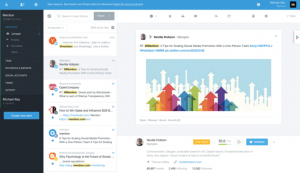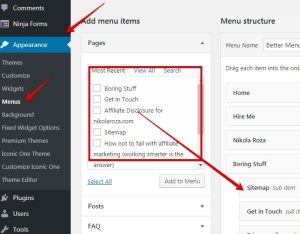Last year, I wrote a blog called ‘How to Start a Social Business’ as I was interested in the concept of starting a business without making profits for investors but for the community. A social business requires a social entrepreneur, so I wrote a follow-up blog called ‘What it Takes to be a Social Entrepreneur.’ Today, I have read about a fascinating example of a social business and I would like to share it with you.

The idea behind a social business
Nobel Peace Prize Laureate Professor Muhammad Yunus proposes a type of business that operates in the same markets as the existing profit-maximizing businesses and that exists for the collective benefit of others.
In 2016, Yunus said: “A social business is a business whose purpose is to address and solve social problems, not to make money for its investors. It is a non-loss, non-dividend company. The investor can recoup his investment capital, but beyond that, no profit is to be taken out as dividends by the investors. These profits remain with the company and are used to expand its outreach, to improve the quality of the product or service it provides, and to design methods to bring down the cost of the product or service. If the efficiency, the competitiveness, and the dynamism of the business world can be harnessed to deal with specific social problems, the world will be a much better place.”
The social entrepreneur
This, of course, requires a specific mindset of an entrepreneur. Not aiming for maximum profit for the investors but for a local community or society at large leads to the social entrepreneur. “Social entrepreneurs are people who look at society and see the big problems and see innovative solutions that are permanent and can change the fabric of society,” says Dr. Lyndon Haviland. While social entrepreneurs want to do well by doing good, they are motivated by wanting to make a difference and leaving the world a better place.
Haviland feels that every business person can take on a social mission and that social entrepreneurs often start small but then build traction because they are not afraid to reach out to others to help them do their work.
Naomi Enevoldson agrees that while there is something distinctive about social entrepreneurs, there are also many similarities with traditional entrepreneurs. She starts by describing social entrepreneurs as ordinary people who find innovative solutions to society’s social problems. They use traditional entrepreneurial models to bring social or community benefits and they often have a personal experience of the need they are addressing and as such, they are uniquely positioned to address some of our most pressing social challenges.
A fascinating example of social business
In ‘Three Social Business Lessons from Detroit’s Grassroots Entrepreneurs’, Amy Gillett and Nathan Rauh-Bieri visited Detroit. I am not American, but when I think about Detroit, I think of the once prosperous car industry, the city’s bankruptcy and a city quickly deteriorating. They met with Devita Davison, who is the co-founder of Foodlab Detroit and a resident who does not want Detroit to be associated with hardship. This article is an interesting read!
FoodLab Detroit
Foodlab Detroit was founded in 2013 when a group of food-loving women observed that there were plenty of cooks in Detroit operating informally for a little extra cash but that production space (licensed commercial kitchens) was their biggest barrier to entering the formal economy.
Together with Jess Daniels and Davison, who co-founded FoodLab Detroit, they found a ready source of kitchens: churches and community centers. These kitchens were underutilized and with some minor adjustments, they could meet the state’s requirements.
Asset-based community development
With a small grant from United Way, Daniels and Davison set up a system to connect entrepreneurs with kitchens. Today, 235 Detroit-area food entrepreneurs are members of FoodLab, who represent many stages of business growth.
One can see FoodLab’s approach as asset-based community development, which creates opportunities based not on what a place is lacking, but on what is already there. Simply said, instead of focusing on what they do not have, they focus on what they do have. FoodLab saw a source of kitchens as well as people who could grow if connected to spaces, training, and one another.
Network
Networking is also a benefit that Foodlab offers its community. Networking often comes directly out of FoodLab’s in-person training sessions and its private Facebook group. Monthly mixers also allow members to connect with one another. According to Davison, this is integral to the organization’s end goal: a nurturing community, into which each person pays, to further a just and equitable food system.
Training and support
With FoodLab’s training and support model, people learn the business skills needed to parlay their cooking hobby into a profitable business. The model consists of three methods:
- At peer-to-peer learning events, food entrepreneurs share technical assistance on how to start a business, covering topics such as licensing and regulations, managing inventory, scaling and manufacturing, and marketing a food business.
- FoodLab Institute provides training and advising for more mature businesses.
- Detroit Kitchen Connect provides shared workspace in an industrial kitchen at Detroit’s Eastern Market as well as in other commercial kitchens throughout Detroit. It also guides entrepreneurs as they form business plans, and learn their operational numbers and food unit costs.
Three Social Business Lessons
Consequently, Gillett and Rauh-Bieri find three social business lessons after talking with Davison:
- Identify community resources
- Create networks
- Offer quality training and support services
Inspiration
I hope you have been inspired by this fascinating story. If you have plans for a social business and you need to reach more people by offering your services or products in other languages, please contact me. As a translator, I would be happy to help!
Digital & Social Articles on Business 2 Community(71)








